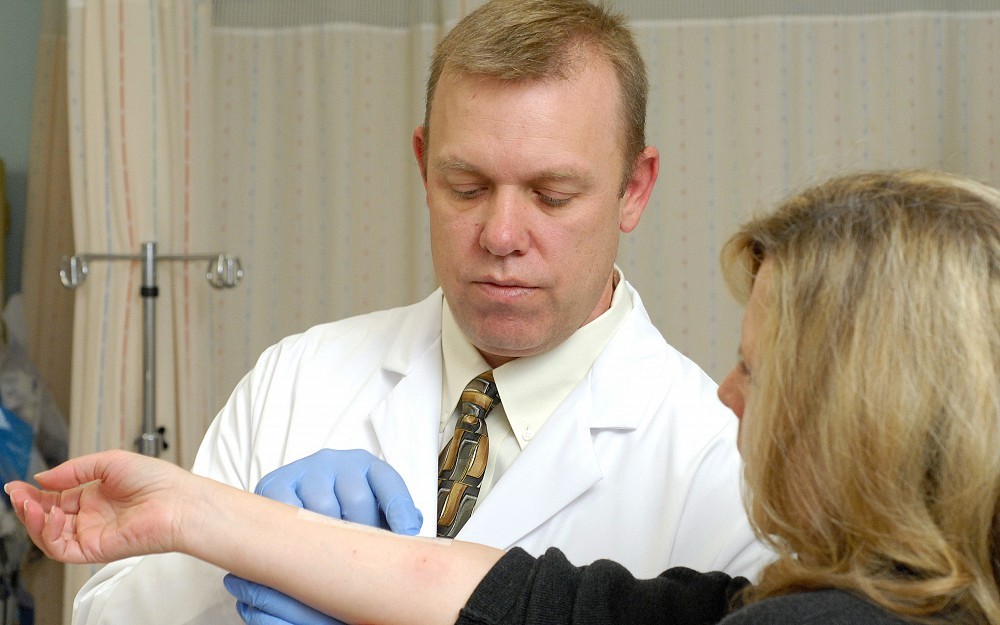
UC HEALTH LINE: Penicillin Allergy Not Always Accurate
CINCINNATI
If you think that you are allergic to penicillin, ask yourself this: How do you know?
Unless youve had the allergy confirmed by a health care professional, you cant know for certain.
People often believe they are allergic to penicillin for many reasons: Maybe they were told by their parent as a child or had a reaction such as a rash that occurred when they had a virus or were taking other medications.
Now, for the first time, researchers at the University of Cincinnati (UC) College of Medicine have looked at the inaccuracy of self-reported penicillin allergies as an issue critical to emergency care.
Prior allergy studies already place the inaccuracy of self-reporting a penicillin allergy at around 85 percent. What emergency medicine researchers found was that the number of people who reported a history of being allergic to penicillin but did not react when skin tested was slightly higher91 percent. The study also concluded that testing for penicillin allergy using skin tests in an emergency department setting was feasible and could allow for more appropriate antibiotic selection in certain cases.
Among the advantages: Penicillin, the first antibiotic discovered, is less expensive; its clinically effective in combating bacterial infections such as strep; and it lessens the use of broad-based antibiotics, which contribute to bacterial resistance, say study co-authors Joseph Moellman, MD, department of emergency medicine, and Jonathan Bernstein, MD, department of internal medicine, division of immunology, allergy section.
The study, an interdisciplinary effort, involved penicillin skin testing, which was administered to consenting patients who self-reported a penicillin allergy in the University Hospital emergency department. Out of 150 participants, 137 displayed false positives; meaning they did not react adversely to penicillin testing.
The implications, both Moellman and Bernstein say, are that a vast majority of the patient population in the emergency department could be feasibly tested and prescribed penicillin.
The study was funded by the University of Cincinnati Emergency Department Resident Research Program. This program is supported by donations from UC emergency medicine faculty and alumni.

Joseph Moellman, MD, tests for penicillin allergy in the emergency department.
Related Stories
UC professor Ephraim Gutmark elected to National Academy of...
December 20, 2024
Ephraim Gutmark, distinguished professor of aerospace engineering at the University of Cincinnati, was elected to the 2024 class of the prestigious National Academy of Inventors.
UC study examines delivery timing in mothers with chronic...
December 19, 2024
In a study recently published in the journal O&G Open, University of Cincinnati College of Medicine physician researchers found 39 weeks of gestation is optimal for delivery in mothers with chronic hypertension.
UC receives $3.75M in federal funding for K-12 mental health...
December 18, 2024
A three-year, $3.75 million grant from the Department of Education aims to address critical gaps in the mental health and educational landscape by providing tuition stipends for UC graduate students majoring in school and mental health counseling, school psychology and social work.
